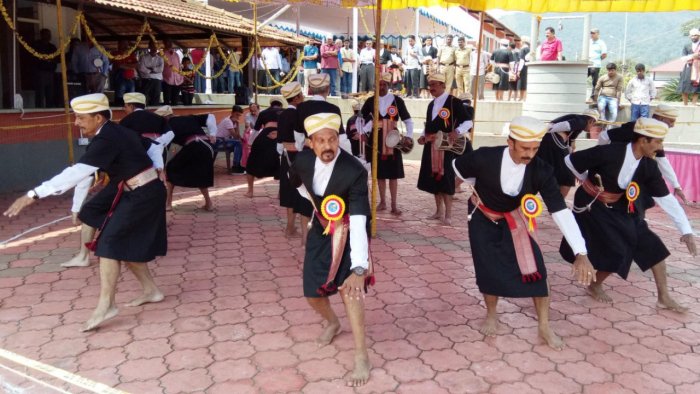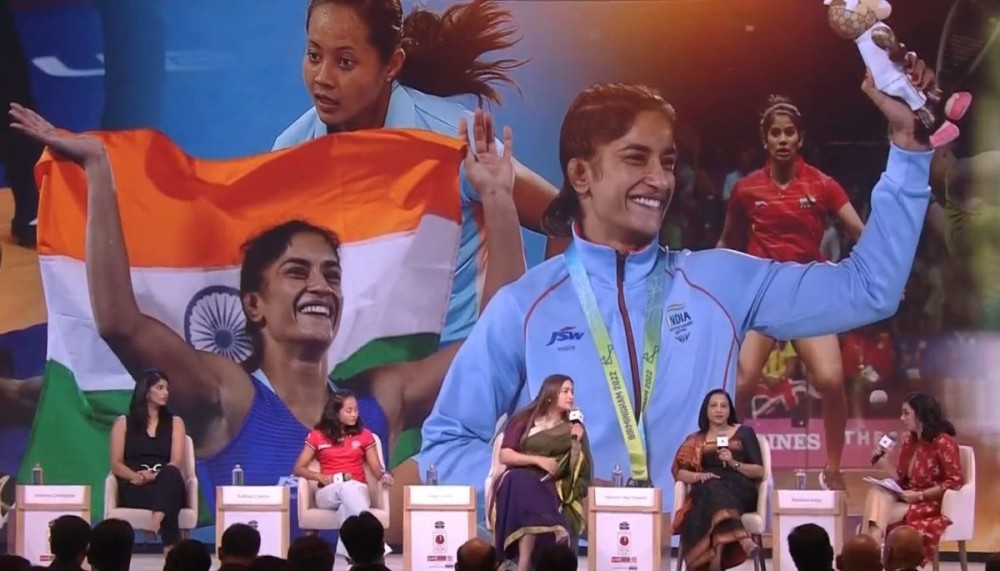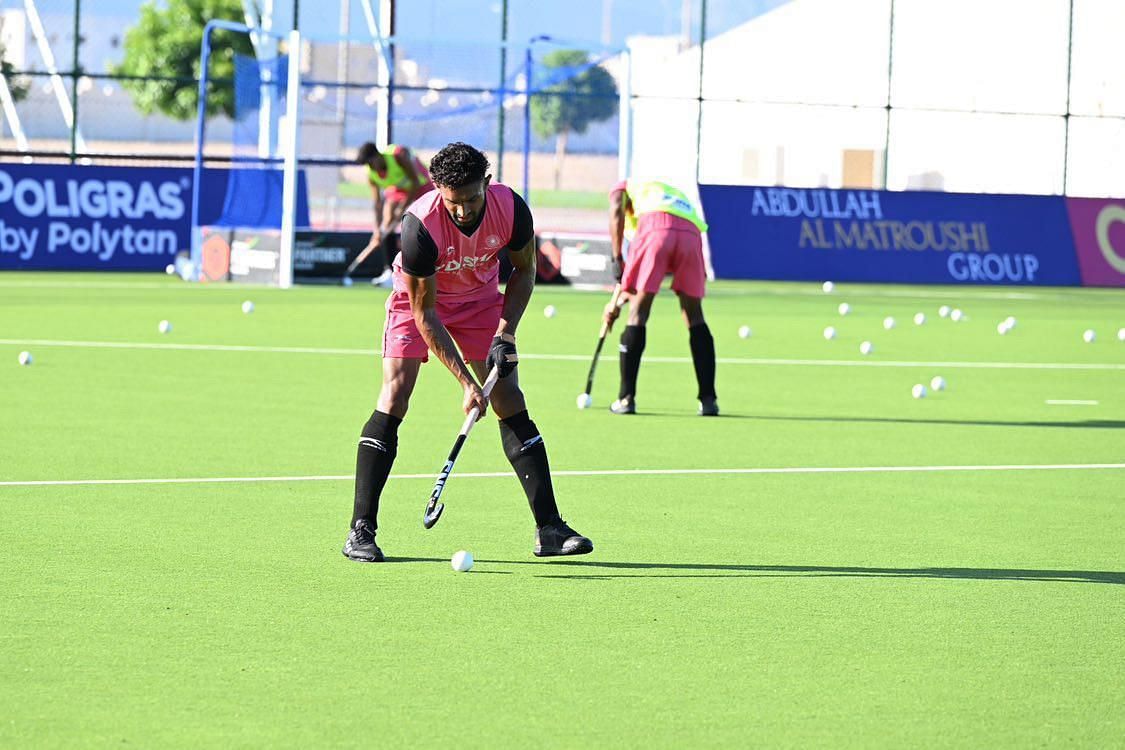
CB Poovanna, a debutant in the victorious outfit that created history by winning the 2022 edition of the Sultan of Johor Cup, is now eager to help his team defend the title in Malaysia.
Passionate, eloquent, and analytical with a mature head on young shoulders, the 21-year-old from Kodagu feels blessed to have practised alongside Coorg-based veterans like SV Sunil and Arjun Halappa during his formative years.
Over the course of an exclusive interaction with Sportskeeda, the young midfielder traces his hockey journey back to the time when he dreamt of making it to the family team in Coorg while also looking back at the Johor Bahru win last year.
“In our Kodava community, hockey is a sport that runs in our blood. Everybody in our community plays hockey. My dad and brother used to play hockey. Having observed them on the pitch, I too wanted to play the game,” Chandura Boby Poovanna stated.
I started holding a hockey stick when I was in third grade. My first dream was to play for the family team. Within the family, there were a lot of hockey players. As a small kid, it isn’t possible for make it to the family team as there a lot of elder players,” he explained.
Being granted admission to track and field athlete Ashwini Nachappa’s KALS (Karaumbiah’s Academy for Learning and Sports) was a game changer for the young hockey aspirant who got to rub shoulders with the best in the business.
“When I was in the fifth grade, I was first allowed to wear the family jersey. I kept playing hockey for the sheer love of the game until there was a selection that happened at KALS,” CB Poovanna stated.
“My mum took me there for the selection. It was a three-day selection process and I was taken into the school on the basis of my performance there. There was a bond according to which I had to play for the school for three years after which I would be sent to SAI (Sports Authority of India),” he revealed.
The rise was evident as CB Poovanna earned a spot in the Hockey Bangalore team after having been selected by SAI but decided to train harder after failing to make the next grade.
An eventual place in the Hockey Karnataka squad led to Poovanna realising his dream after being selected in the team headed to Johor Bahru.

“I started training harder and hit the gym on rest days after failing to progress from a core group of 60 players which was trimmed down to 30. COVID interrupted my progress for a bit before which I played for Hockey Karnataka,” he said while pausing to recall the precise details.
“Four players were finally selected from a group of 30 ahead of the Sultan of Johor Cup last year. I had realised a part of my dream,” CB Poovanna declared.
“At SAI, we played against an ex-India XI which boasted names like SV Sunil” – CB Poovanna describes the Coorg pedigree
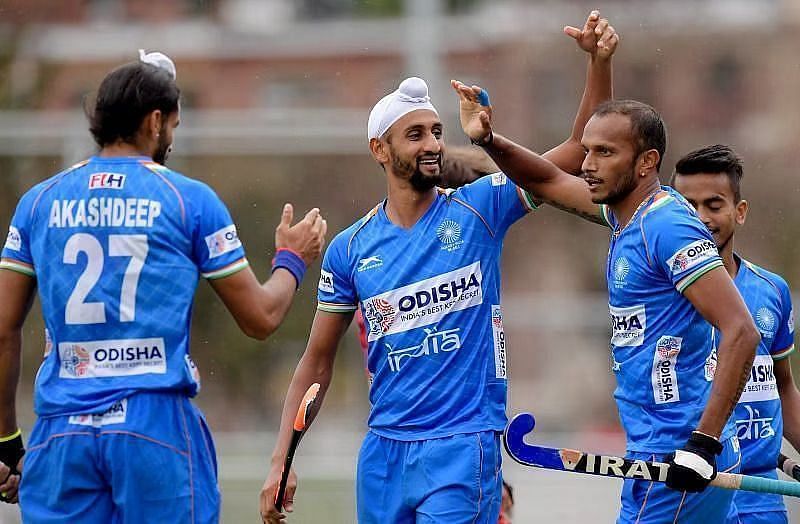
Some of India’s best hockey talent has been nurtured in Coorg which boasts of having produced a host of legendary names. Unsurprisingly, Poovanna describes with an unmistakable sense of pride what it meant for him to have rubbed shoulders with the former India internationals.
“At the SAI campus, we used to play matches against an ex-India XI which boasted of players like SV Sunil and Arjun Halappa. You also had other greats from Coorg like SK Uthappa, VR Raghunath, Nikkin Thimmaiah, and Nithin Thimmaiah,” he stated reeling off the names effortlessly.
“I consider myself lucky to have played over three years of hockey with them. Aside from playing matches alongside them, we also used to ask them a lot of game-based questions about tactics,” Poovanna said.
The Karnataka player also recalled fellow midfielder and “exceptional” Bangalore boy Mohammed Raheel coming over to Coorg while still in school to play a tournament there. Raheel donned India colours under the tutelage of Graham Reid last year.
“I first met Raheel when I was in the sixth or seventh grade. My family had once called Raheel and a few other players to come over to play our family tournament in Coorg,” said CB Poovanna shedding light on the memories.
“Raheel was exceptional back then as well. He had great speed even on a gravel ground. He was an idol for me also because he plays as a midfielder,” the youngster added.
“CR Kumar has been exceptional as a coach” – CB Poovanna
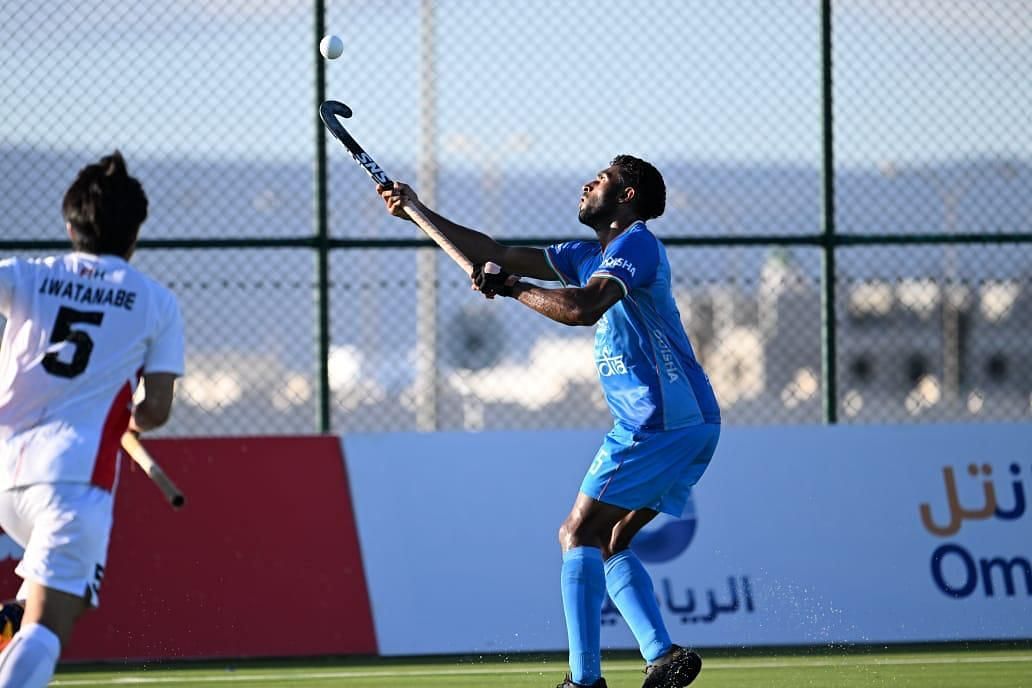
Several Indian players in the men’s and women’s camp have been tutored by veteran hockey coach CR Kumar who is now in charge of the junior boys. CB Poovanna was all praise for the committed coach who helped shape his career.
“CR Kumar has been exceptional as a coach. He is committed and totally into the sport,” said Raheel with an air of reverence. “He has shaped me from being who I was to who I am right now.”
Headed to Johor Bahru to defend India’s title at the 2023 Sultan of Johor Cup, CB Poovanna cannot help reminiscing about the glory of his debut international tournament victory.
“The 2022 Sultan of Johor Cup was my first international tournament. It was a really new experience, wearing the India jersey for the first time,” he stated.
A scintillating 5-5 draw against Great Britain witnessed Poovanna scoring a 7th-minute equalizer after the opposition had taken the lead in the opening minute of play.
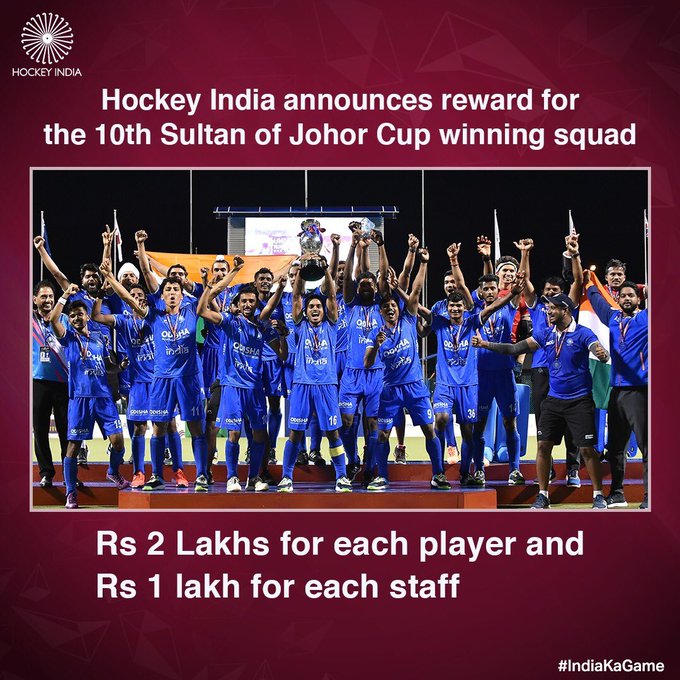
“It felt as if the hard work really paid off for us” – CB Poovanna turns the clock back in the big final against Australia
Six goals were scored in a frantic final quarter with the Indian boys finding the back of the net four times before taking on Australia in the big final.
“The match against Great Britain was pretty intense with one side taking the lead and the other cancelling it out,” recalled Poovanna. “Scoring the equalising goal helped motivate the rest of the team and that is when we all started pepping each other up.”
CB Poovanna opined that Australia’s equalising goal against India wasn’t legitimate but goes on to describe the pulsating shootout during which the Indians achieved victory.
“The pressure and intensity of the final is different. We scored the opening goal and Australia equalised but the goal wasn’t legitimate. There was actually a foul which happened in their circle which led to a goal in our circle. At the junior level, we do not have video referrals and hence were unable to challenge the goal,” he said.
“Both teams pressured each other for the ball and finally it led to the shootout which was going one way and then the next. Finally Mohit Shashikumar (the goalkeeper) made a great save after which we scored and won the tournament. It felt as if the hard work really paid off for us,” CB Poovanna affirmed.
The 2023 Sultan of Johor Cup begins on October 27 with the Indians facing Pakistan in their Pool B opener. Malaysia and New Zealand are also in Pool B while Australia, Great Britain, Germany, and South Africa find themselves in Pool A.
Will defending the title add to the pressure for captain Uttam Singh and co.?
“Not in the least,” shoots back CB Poovanna unhesitatingly. “The pressure will be on the opposition, for us being defending champions is a big motivation.
The final of the tournament is scheduled to be played on November 4 at Johor Bahru.
source: http://www.sportskeeda.com / Sports Keeda / Home> Field Hockey / by Subhashish Majumdar / October 23rd, 2023
